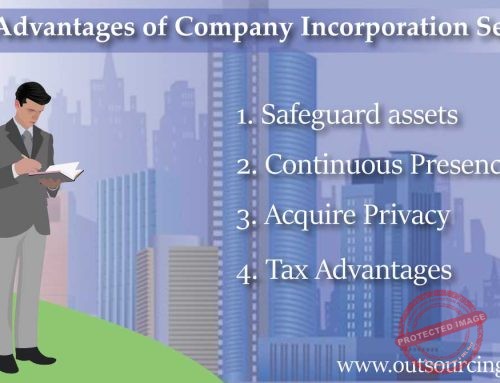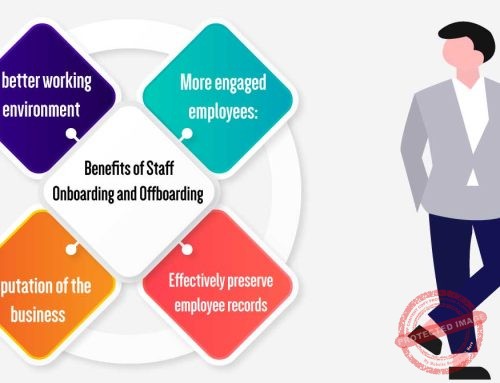Starting a business can be daunting, especially if you are unfamiliar with the process. Fortunately, company formation can be a relatively straightforward process, and with the right guidance, you can be up and running in no time.
However, you will also need to create a business name and logo. These should be unique and reflect your brand. It is also a good idea to conduct a trademark search to make sure you are not infringing on any existing trademarks.
Finally, you must open a business bank account and obtain any necessary insurance policies. This will help protect your personal assets in the event that your business is sued or fails.
Therefore, it’s a common query, “How To Start Your New Company?”
Starting a new business can be an exciting, yet daunting task. Once the paperwork is complete, obtain capital for the business, create a business plan, and find the right space for your business. Finally, hire the right people to help make your business a success.
Let’s talk about it down below!
How To Start Your New Company
Starting a new company can be an exciting but challenging venture. To get your business off the ground, you will need to go through the process of company formation. The first step is to choose a business structure that best suits your needs.
Common choices include single business, partnership, limited liability company (LLC), and corporation. After deciding on a structure, you must choose a name for your company and file it with your state’s business registration agency.
You may need to acquire licenses and permits from municipal or state government organizations, depending on the nature of your company. It is also necessary to acquire a tax ID number and open a company bank account.
Finally, establish an accounting and bookkeeping system to keep track of your business finances. By following these steps, you can successfully form your new company and start your journey as a business owner.
Process of Simple New Company Formation
1. Choose a business structure
Determine the type of business structure that best suits your needs. Consider factors such as liability protection, tax implications, and management structure.
2. Choose a business name
Choose a name that is unique, available, and reflects your brand. Check for name availability with your state’s business registration office.
3. Register your business
Register your business with your state’s business registration office by filing the appropriate forms and paying the required fees. You may need to provide additional information, such as a business plan, to complete the registration process.
4. Obtain any necessary licenses and permits
Depending on your industry and location, you may need to obtain licenses and permits from local or state government agencies.
5. Obtain a tax ID number
Obtain an Employer Identification Number (EIN) from the IRS. This is a unique identifier for your business that is required for tax purposes.
6. Set up accounting and bookkeeping
Establish a system for keeping track of your business finances. This can include software, spreadsheets, or hiring an accountant.
7. Obtain business insurance
Protect your business and yourself by obtaining the necessary insurance coverage. This can include general liability, workers’ compensation, and property insurance.
Simple New Company Formation Cost
In general, the cost of company formation can range from a few hundred dollars to several thousand dollars.
It is important to research and understands the specific costs and requirements in your state before beginning the formation process.
The cost of company formation varies depending on the type of company and the state or country where the company will be formed.
Generally, the cost is anywhere from $50 to $1,500 or more, depending on the complexity of the formation process, filing fees, and other factors.
Benefits of Simple Company Formation
1. Limited liability
By establishing a corporation or limited liability company (LLC), you can restrict your personal liability for corporate debts and litigation. Personal assets are usually protected from company debts and responsibilities.
2. Tax benefits
Depending on the sort of company entity you establish, you may be qualified for tax advantages such as pass-through taxation or reduced corporate tax rates.
3. Credibility
Having a legal business entity can give your company more legitimacy, make it simpler to get funding, and facilitate building relationships with suppliers and clients.
4. Brand protection
Registering your business name and logo can help protect your brand and prevent others from using it.
5. Perpetual existence
A formal business entity can continue to exist beyond the lifetime of its founders. This provides continuity and stability for the business.
6. Access to funding
A formal business entity can make it easier to obtain financing, such as loans or investments from venture capitalists, angel investors, or crowdfunding platforms.
Discover The Factors to Grow Simple Company Formation
1. Market research
The market study will help you comprehend your target population, industry trends, and competitor environment better. This will assist you in identifying growth possibilities and fine-tuning your company plan appropriately.
2. Effective marketing
Develop a comprehensive marketing strategy that includes branding, advertising, and social media. Use your market research to tailor your messaging and outreach to your target audience.
3. Financial management
Develop a sound financial strategy that includes budgeting, forecasting, and tracking key financial metrics. This will help you manage cash flow, control expenses, and identify growth opportunities.
4. Talent management
Hire and retain talented employees who are aligned with your business goals and values. Provide ongoing training and development opportunities to help your employees grow and advance in their careers.
5. Innovation
Look for methods to improve your goods or services and differentiate yourself from the competition. Encourage employee creativity and collaboration to fuel invention and development.
To Conclude
The process of company formation is both complex and time-consuming, but with the right guidance and resources, it can be a manageable process.
You can effectively start your own company and embark on an entrepreneurial adventure with the assistance of a professional service or knowledgeable people.
Setting up a company is an exciting venture that should be taken seriously, but with the proper preparation and research, it can be a rewarding experience. Contact Us for more details.
FAQs
How long does it take to form a new company?
The time it takes to form a new company can vary depending on the state and the type of entity being formed. In some states, it can take just a few days, while in others it may take several weeks.
Do I need to have a business plan to form a new company?
While a business plan is not required to form a new company, it can be a valuable tool for outlining your business goals, strategies, and financial projections.
Can I change my business structure after formation?
Yes, it is possible to change your business structure after formation. However, the process and requirements for doing so may vary depending on the state and the type of entity.
What is the difference between a sole proprietorship and a corporation?
A sole proprietorship is a type of business structure in which an individual owns and operates the business. A corporation is a separate legal entity from its owners, and the owners are not personally liable for the debts and obligations of the business.






